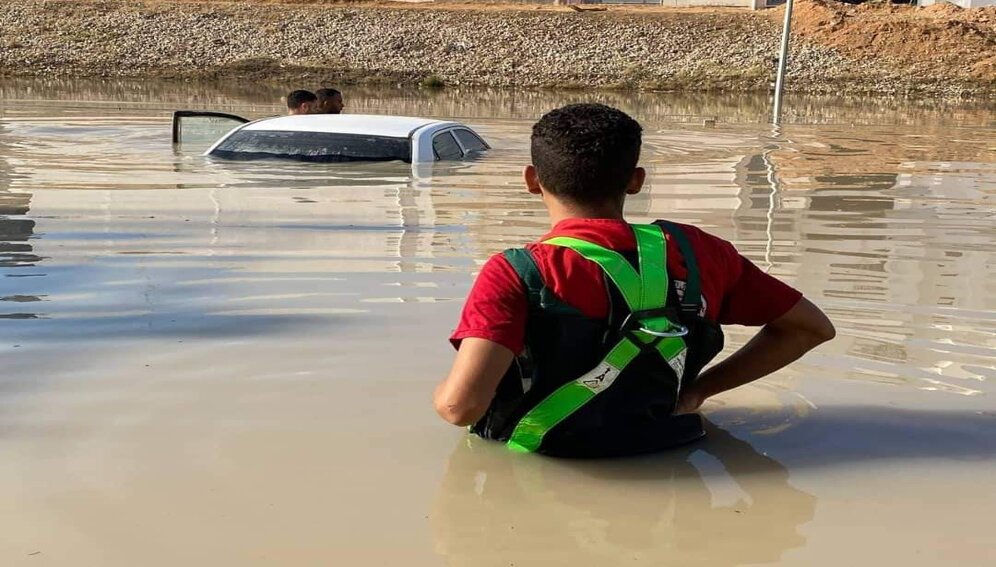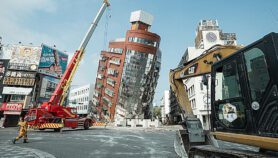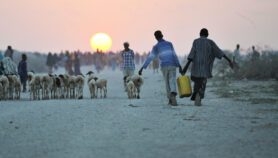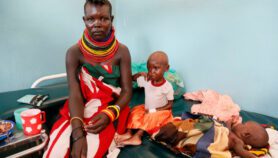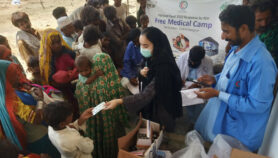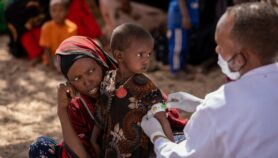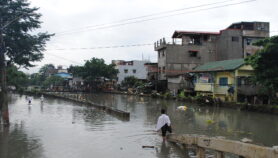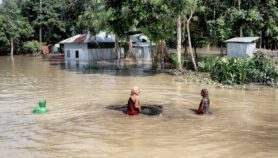By: Hazem Badr
Send to a friend
The details you provide on this page will not be used to send unsolicited email, and will not be sold to a 3rd party. See privacy policy.
[CAIRO] Rescue teams in Libya have made a desperate plea for international assistance as they struggle to get essential medical supplies to survivors of the tsunami-like floods that have killed thousands of people and crippled health services.
“The situation in eastern Libya is unimaginable,” said health rights activist Khadija Andidi, former director of the Red Crescent branch in Oubari, south Libya, after floodwaters washed away entire neighbourhoods, including many medical facilities.
Authorities and aid organisations now face the gargantuan task of not only reaching survivors with aid but also preventing a further crisis from disease outbreaks.
Storm Daniel, which hit the north-eastern coasts of Libya on Sunday (10 September), wrought immense destruction along the coast as it swept through the eastern areas of Benghazi, before moving east to the Green Mountain region.
Towns and cities such as Bayda, Al-Marj, Shahhat and Soussa were badly affected, but the real disaster was in Derna, where the huge pressure of water led to the collapse of two dams.
Huge quantities of water loaded with mud were dumped on the city, obliterating landmarks and leaving thousands of people dead or missing.
As rescue teams race against time with limited equipment, survivors face the hopeless task of finding health services to keep them alive after hospitals were washed away and taken out of service.
‘We need more support’
“Entire families are missing,” Andidi told SciDev.Net.
“My fellow paramedics who managed to reach Derna are having difficulty securing medical services for survivors,” she said.
“These are scenes that we are not used to and we have no experience in dealing with these situations, so Libya alone or even its Arab neighbours will not be able to act.
“We need more support from the international community, with rescue teams with experience in dealing with these conditions.”
Sondos Shuwaib, a blogger from Derna who was caught up in the floods, posted a distraught account of her experience online.
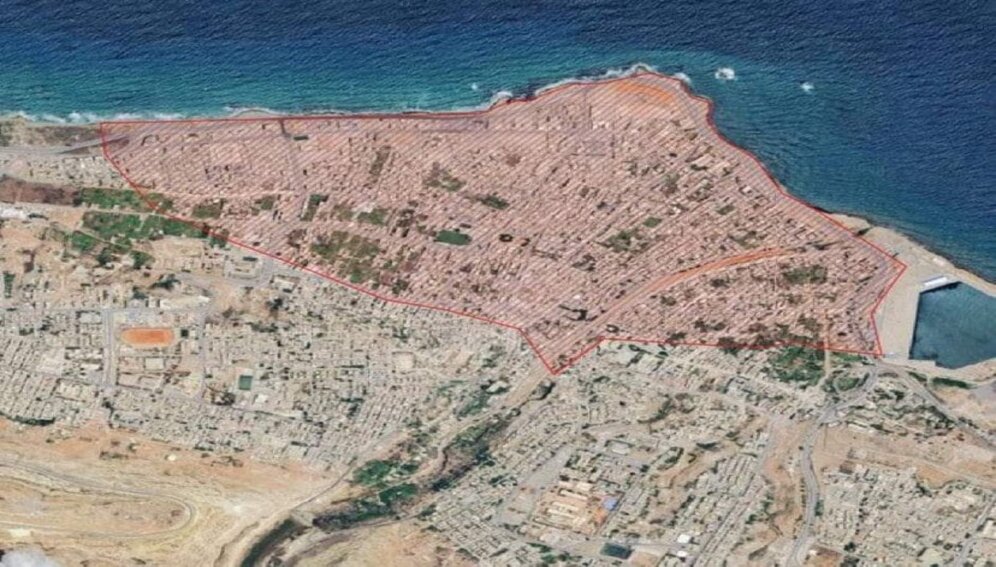


Map showing part of the Libyan city of Derna, engulfed by Storm Daniel.
Shuwaib said she was at home when she suddenly found herself washed away, before being swept into shallow water and rescued.
“There were bodies next to me, bodies above me, bodies below me,” she wrote.
“I can’t comprehend what happened, sometimes I thank God for surviving, but when I remember my parents are missing, I wish I had died with them.”
Government official Moneim Al-Majdoub, a member of the Soussa damage assessment committee, said the situation there was less severe but nevertheless required international assistance.
“Things are not as bad in Soussa as in Derna, whose features have completely changed, and the smell of corpses fills the place,” said Al-Majdoub but he added: “We still need experienced rescue teams, because the teams currently working […] are not professionals and are not used to dealing with such disasters, which we are witnessing for the first time.”
Epidemic risks
Al-Majdoub added that the risk of diseases spreading was a real concern.
“There is an unknown future awaiting the health situation in Libya, related to epidemics that find an opportunity to spread, especially with floodwaters,” he said.
“The scale of the humanitarian crisis in the flood-affected areas in Libya is unprecedented”,
Ahmed Al-Mandhari, WHO regional director, Eastern Mediterranean
“We know that these conditions create a suitable environment for the outbreak of some water-borne, food-borne and vector-borne diseases and we hope that, in cooperation with local authorities, we will be able to remedy the repercussions of the situation before outbreaks arise,” he said, adding that this would require an in-depth assessment of the health situation in affected areas.
Ahmed Al-Mandhari, regional director of the World Health Organization for the Eastern Mediterranean, told SciDev.Net: “The scale of the humanitarian crisis in the flood-affected areas in Libya is unprecedented.”
Statistics available to the organisation estimate the population of the areas affected by Storm Daniel—the largest and worst storm Libya has seen since the last century—at about 1.5 to 1.8 million people in the eastern region of the country, according to Al-Mandhari.
He described the health needs as “staggering”, with three hospitals in Derna out of service, requiring the evacuation of patients to neighbouring hospitals in the districts of Jabal al-Akhdar.
Two other hospitals in Al-Marj have been damaged and are “partially functioning”, while two emergency operations centres were being set up in the affected areas, Al-Mandhari said.
“As of yesterday, 13 September, the number of officially reported deaths has risen to more than 3,400, the number of missing people has increased from about 5,000 to 9,000, and the number of deaths is likely to reach 15,000, and response teams are still in urgent need of body bags,” he added.
Al-Mandhari explained that accessing flooded areas was a major challenge, due to the collapse of infrastructure, with just one seaport along the Derna coast in operation.
The WHO is working alongside Libya’s Ministry of Health and the National Center for Disease Control in Libya to promote risk communication activities and messages on prevention of waterborne diseases.
Doctors Without Borders (MSF) stressed the need to scale up disease surveillance, restore flooded sanitation facilities, and ensure adequate medicines and health supplies for survivors.
Urgent supplies were airlifted into the country this week, including 28 metric tonnes of surgical and emergency equipment and medicines. Among these were cholera laboratory reagent kits to ensure surveillance for the disease which is prevalent after floods.
This article was produced by the SciDev.Net’s Middle East and North Africa desk and edited for brevity and clarity.


